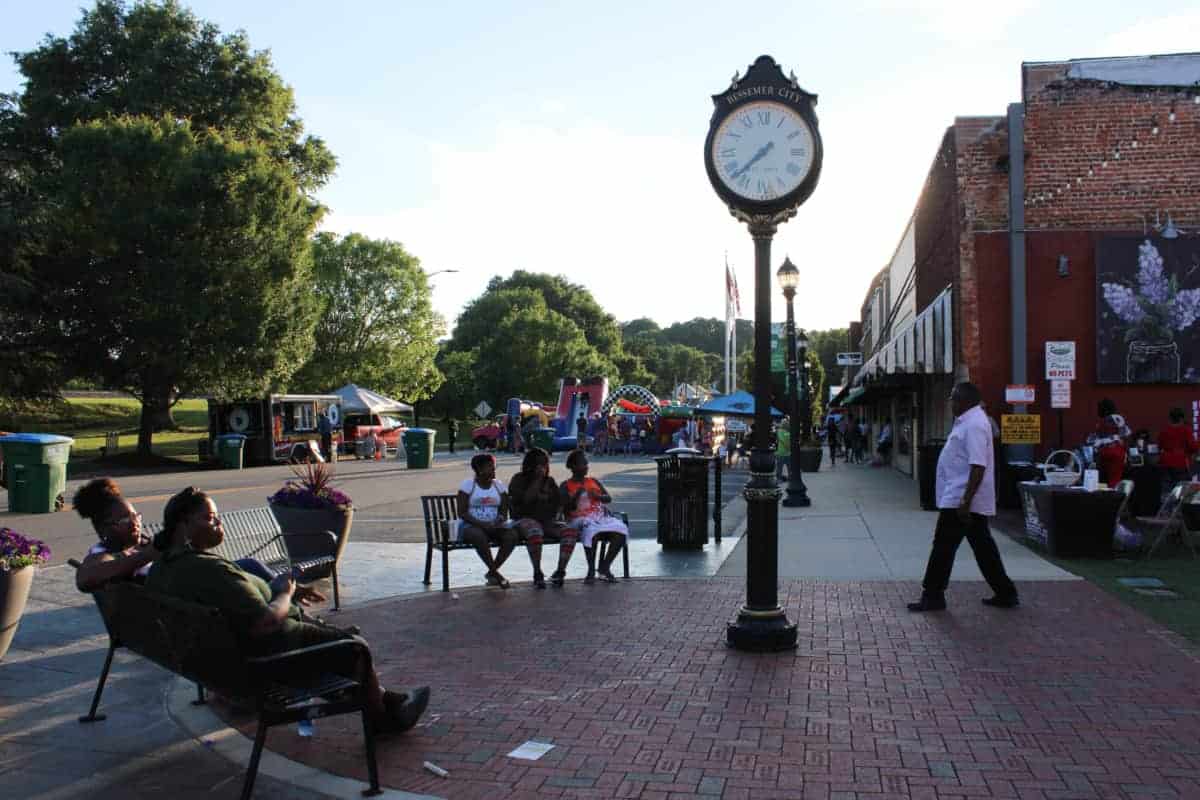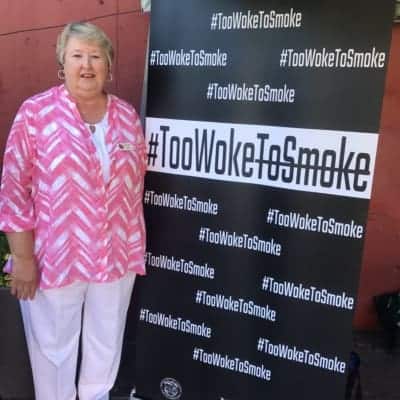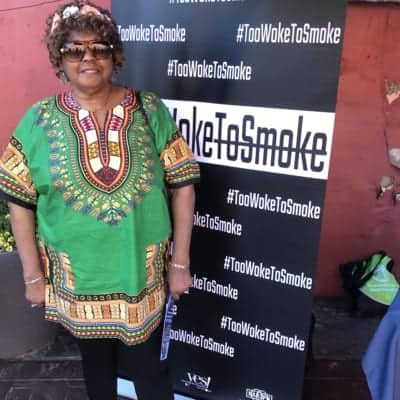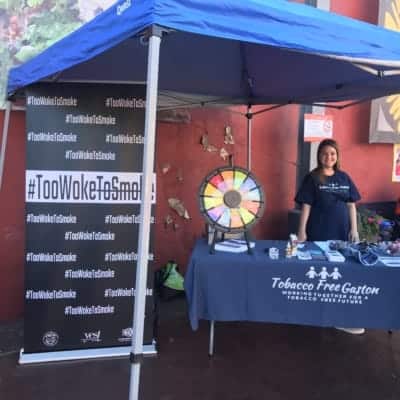Last Friday evening, a firetruck closed the road into downtown Bessemer City, which bustled with music, dancing, food trucks, and games for families. Community members had come together to celebrate the city’s first Juneteenth, a holiday commemorating the end of slavery in the United States and honored nationwide today — June 19.
“It’s just a Freedom Day, Emancipation Day, a good celebration, so we wanted to make sure we were a part,” said Hydeia Hayes, city clerk for Bessemer City, who had the vision for the municipality holding an event in honor of the holiday. She said it was an idea also supported by the city manager, mayor, and city council.
“We are seeing a mixture of people here and a really good crowd,” said Josh Ross, economic development officer with Bessemer City. “We’ve partnered with regional partners, local organizations, and other event coordinators in the community to put on this event, so we’re really excited with the turn out.”
Tobacco Free Gaston, a coalition that provides outreach and advocacy to reduce the usage of and exposure to tobacco products in Gaston County, was one of the regional partners in attendance.
“We are specifically out here because we understand that tobacco companies have historically targeted communities of color and are still targeting communities of color,” said Alyssa Mouton, health education supervisor for Gaston County Department of Health and Human Services (DHHS). “We see high rates of tobacco usage among communities of color and also high rates of morbidity and mortality as a result, so this is a health equity issue and this is a fairness issue.”
In addition to sharing information at the event about the tobacco industry’s marketing practices to minority groups, Tobacco Free Gaston leaders also provided resources for smoking cessation support (like QuitlineNC) and samples of e-cigarette products like Juul for parents to see firsthand.
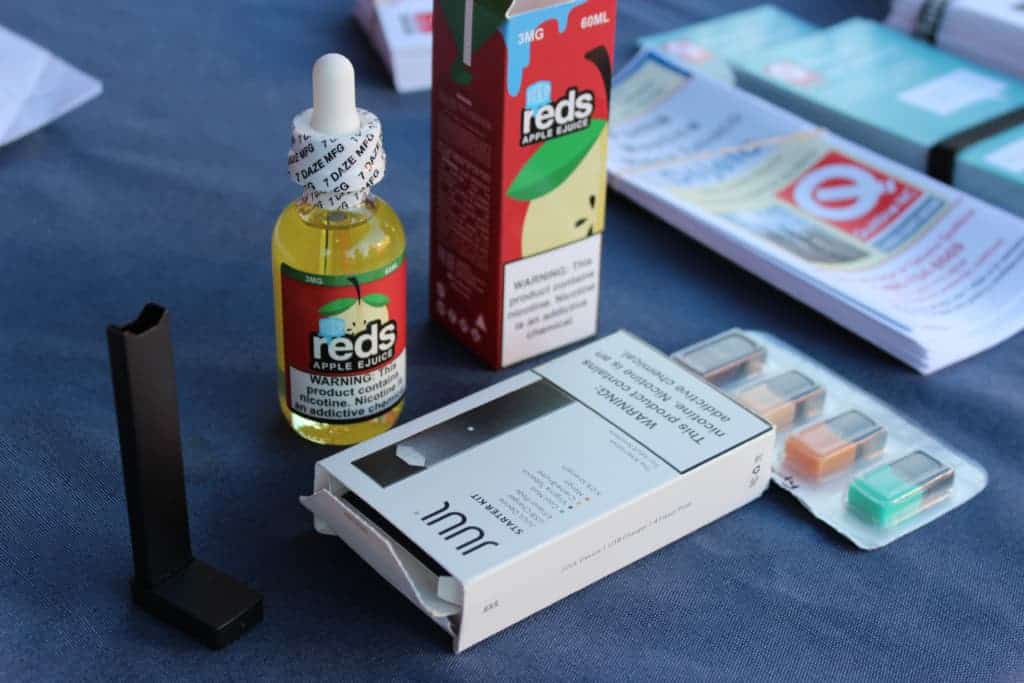
“A lot of people don’t even know what they don’t know about e-cigarettes, and that’s why we have examples of juices and a Juul available for people to look at and hold and touch and smell so that they know what to look out for and they understand what might be in their kid’s room, or in their grandkid’s room,” Mouton said.
Mouton also said companies are targeting youth and on-boarding the next generation of tobacco users through things like fun flavors and tech-oriented devices that appeal to youth.
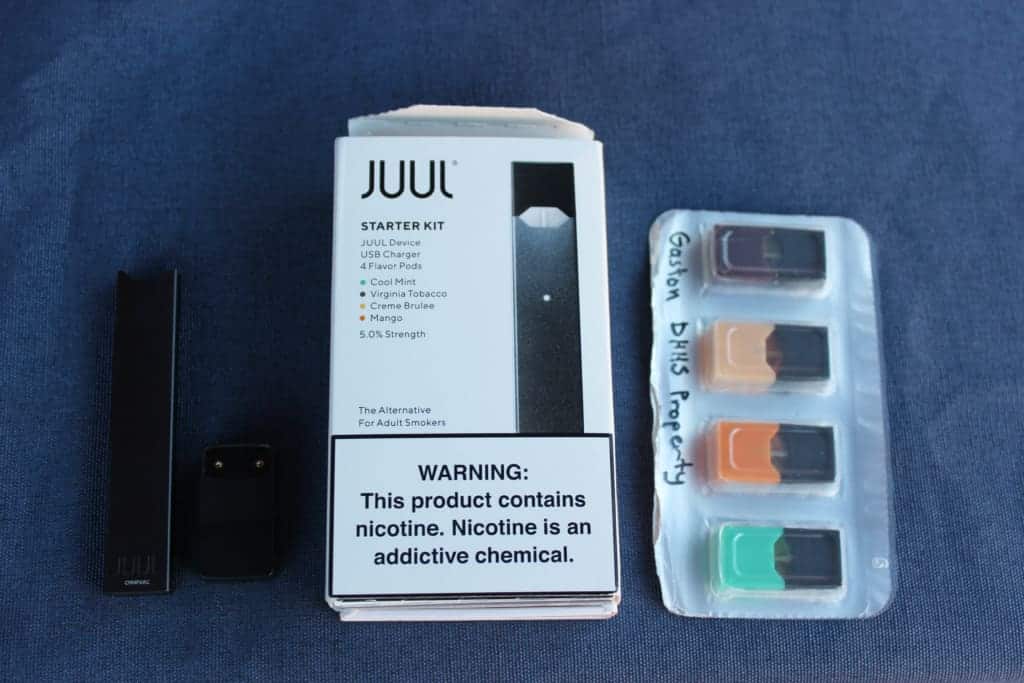
The Mecklenburg County Office of Policy and Prevention also collaborated with Tobacco Free Gaston for the Juneteenth celebration, providing materials from their #TooWokeToSmoke campaign, recently developed in partnership with Youth Empowered Solutions as part of this year’s Central Intercollegiate Athletic Association (CIAA) basketball tournament, made up of historically black colleges and universities.
“The word ‘woke’ is very cultural,” said Kim Caldwell, Mecklenburg County’s tobacco control priority populations coordinator. “There’s some historical context to this. It’s been around for 60-70 years, and it has evolved over time.”
Caldwell said the #TooWokeToSmoke campaign targeted all tobacco products from cigarettes to menthols and e-cigarettes.
“Menthol is a flavor that is used in tobacco that makes that tobacco less harsh, and so when menthol is used in tobacco it makes it easier to start because it masks the harshness,” said Kim Bayha, tobacco control program supervisor for Mecklenburg County Public Health. “And it’s also harder to quit when you use menthol.”
Bayha also pointed to what she called “an intentional history of the tobacco industry marketing menthol to the African American community.”
“It’s an example of predatory marketing that the industry has done to a vulnerable population,” she said.
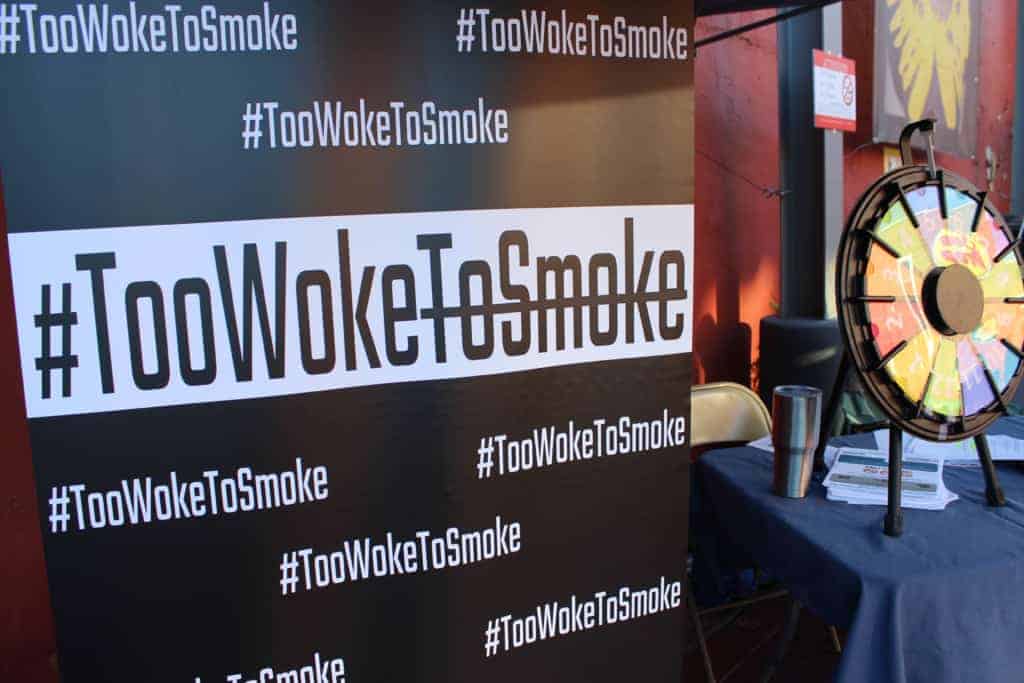
Unlike menthols, however, e-cigarettes are less likely be taken up by minority youth — for now. The Youth Drug Survey of Fall 2018, published by UNC-Charlotte, the Center for Prevention Services, and Alianza Coalition found that Black youth in Mecklenburg County were “65% less likely to use e-cigarettes in comparison to White youth” and “Latino and Asian youth were 40%-50% less likely to use e-cigarettes in comparison to White youth.”
“That’s why it’s a good opportunity to say #TooWokeToSmoke,” Bayha said. “You know, ‘Don’t let this also happen to your community.’”
Bessemer City on the forefront of tobacco control

Tobacco Free Gaston’s partnership with Bessemer City for tobacco prevention happened to be preaching to the choir.
“It’s a small community, but they’ve been very powerful in terms of the work that they’ve done with tobacco,” said Tara Knight, health education coordinator for Gaston County DHHS. “They were the first to go 100% comprehensive with their tobacco policies, so everything that we’ve done in the county as a whole, they’ve done that since 2016.”
“They’re kind of the champions and the leaders in terms of tobacco policy,” she said.
Gaston County as a whole followed suit. Last month, the county announced in a press release:
Gaston County Commissioners voted to confirm the Gaston County Health & Human Services Board’s (HHS Board) Tobacco Rule prohibiting the use of tobacco and tobacco products on Gaston County government grounds, buildings, parks and vehicles and indoor public places. This rule is now the most comprehensive county-wide tobacco policy in North Carolina. Tobacco products include cigarettes, cigars, snuff, chewing tobacco and electronic cigarettes.
While the rule does not go into effect until July 1, 2020, Mouton said it was a key step in tobacco prevention.
“When you go onto a park or to pay your electric bill on a city property, you won’t have to walk through a cloud of smoke and have those cravings triggered,” she said. “That’s actually an evidence-based approach to helping people what they call ‘stay quit’ — supporting cessation through policy.”
At the Juneteenth event, however, Bessemer City was already tobacco-free.
“We wanted to be the first one to actually lead,” Hayes said. “And pave the way to say that municipalities can take charge and actually provide their community with clean, breathable air.”
